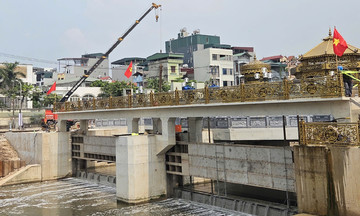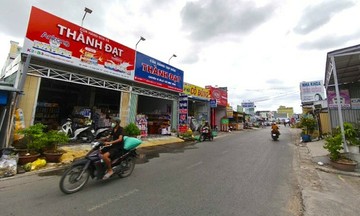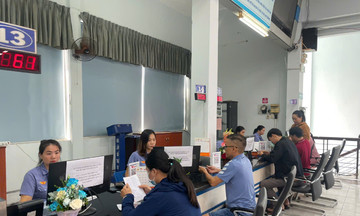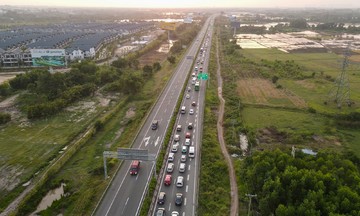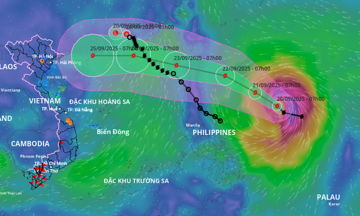Kieu Thien Tam, 35, from Vinh Phong commune, An Giang province, said that although his family owns one hectare of rice paddies, all four siblings have refused to continue farming. Tam himself has transitioned into business, while his sisters work as factory workers in Binh Duong and Ho Chi Minh City.
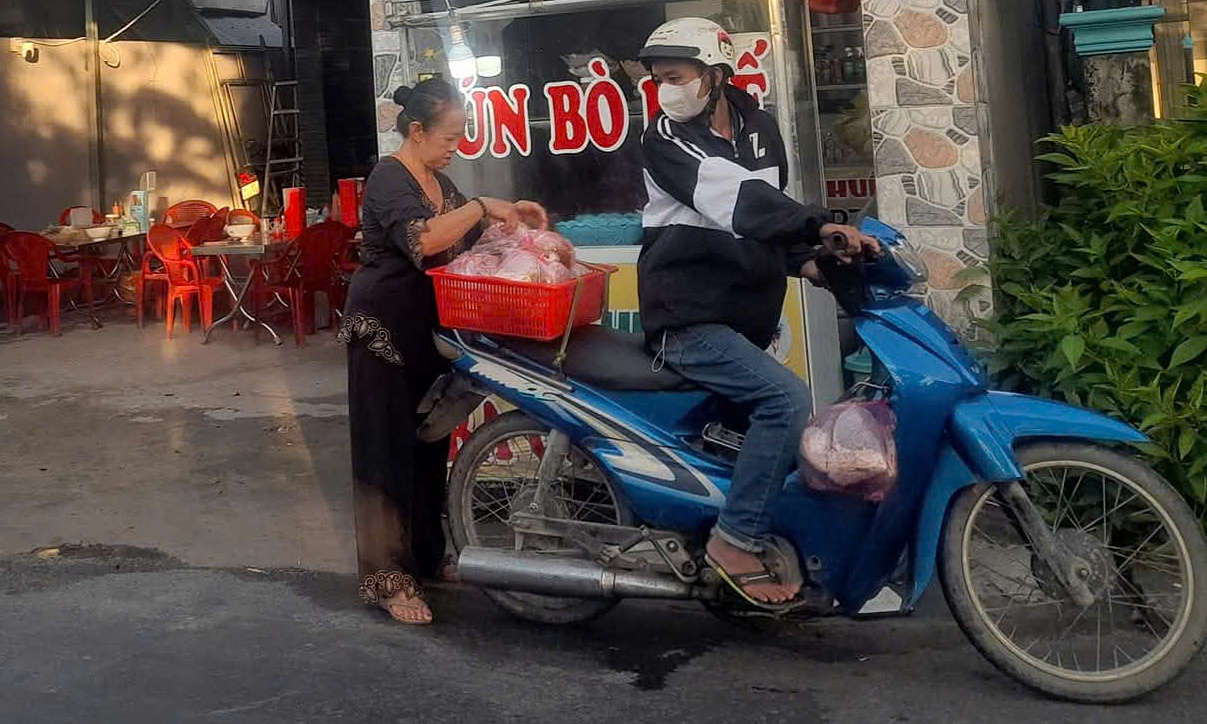 |
Tam chose a business career despite his family owning one hectare of agricultural land. Photo: Minh Bang |
Tam chose a business career despite his family owning one hectare of agricultural land. Photo: Minh Bang
He calculated that two rice harvests a year yield a profit of only 5-10 million VND per harvest. The natural shrimp season depends on unpredictable weather, making income uncertain. Cultivating the field requires at least two laborers, and even a successful harvest brings in only 50-60 million VND annually, barely enough to cover basic living expenses, let alone their children's education.
"Farming provides a subsistence living, not a path to wealth. Young people today have so many options for stable, well-paying jobs. Farming is both hard and precarious, so who would be enthusiastic?", Tam shared.
Contrary to this aversion to farming, Nguyen Minh Sam, 36, from Dong Thap province, decided to return to farming after years of working in construction. However, the outcome wasn't as he'd hoped.
In 2020, when Covid-19 brought construction work to a standstill, he used his savings of over 20 million VND to renovate a nearly 4,000 m2 garden. Sam planted jackfruit, guava, and lemon trees, and while waiting for the harvest, he intercropped with chili peppers and straw mushrooms to make ends meet. But due to his lack of experience, every investment resulted in a loss. "Farming depends heavily on fertilizers and pesticides, while selling prices are unstable. All my capital was wiped out," Sam said, adding that he would return to construction work to earn a living.
Data from the General Statistics Office of Vietnam reveals that the trend of young people abandoning agriculture is not limited to a few localities. The percentage of agricultural laborers under 30 in the Mekong Delta has plummeted, while those over 40 account for almost 60% and continue to rise. Between 2011 and 2021, the region's agricultural workforce decreased from 5.1 million to 3.6 million, a 40% reduction.
According to Dr. Tran Huu Hiep, an economist in the Mekong Delta, the decline in agricultural labor and its shift towards industry and services is a natural progression seen in most countries, reflecting the restructuring of the economy. While this phenomenon has positive aspects, it also leaves a significant void in the Mekong Delta.
Nguyen Do Dung, co-founder and CEO of Enfarm, believes that Vietnamese agriculture remains fragmented and low-yield.
In the Red River Delta, the average cultivated area is only about 0.3 ha; in the Mekong Delta, it ranges from 0.5 to 1.4 ha. Meanwhile, the average farm size in the US is 400 ha, and in Australia, it's 4,000 ha. "With such a small scale, it's very difficult to establish a modern agricultural sector, apply technology, and achieve high yields," Dung analyzed.
He argues that the shift of labor away from agriculture isn't necessarily negative, as it allows for the expansion of the average area per remaining worker – a prerequisite for technology adoption. However, to attract skilled workers, the government needs both "carrots" and "sticks."
"Carrots" include financial support, agricultural extension services, incentives for technology investment, and digital transformation across the value chain to enhance productivity and sustainability. "Sticks" involve mandatory regulations on agricultural product standards, food safety, and traceability, forcing farmers to adopt technology to protect consumers and increase competitiveness.
"Agriculture cannot rely on outdated practices. Climate change has altered seasons, soil, and water resources. We need technological control, not just experience," Dung said.
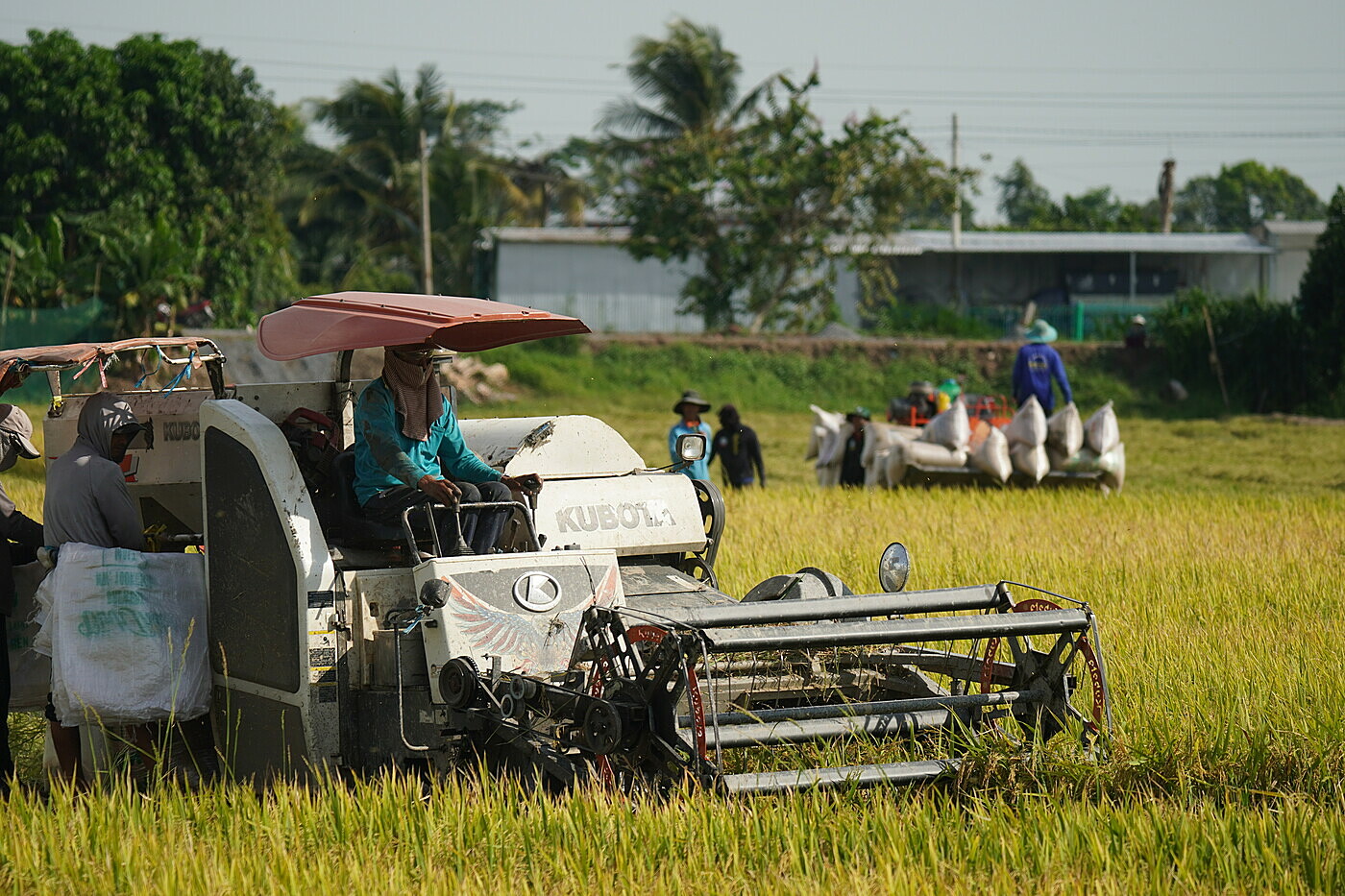 |
Despite the increasing use of machinery in many production stages, farming remains unattractive to many young workers. Photo: Ngoc Tai |
Despite the increasing use of machinery in many production stages, farming remains unattractive to many young workers. Photo: Ngoc Tai
According to Dr. Tran Huu Hiep, relying on spontaneous shifts is not enough. Without timely policies, agriculture will lack skilled personnel to lead the green transition, apply technology, and increase productivity.
The expert believes a proactive approach is needed, focusing on training and retraining the workforce to meet business needs and promote sustainable development. Some new-style cooperatives and high-tech agricultural enterprises in An Giang, Dong Thap, Vinh Long, and Can Tho have demonstrated that when mechanisms are transparent and jobs are stable, young people are willing to commit long-term.
To retain young workers, Dr. Hiep suggests synchronizing three policy groups. First are social security and income policies, including agricultural insurance, preferential credit, and consumption linkage contracts. Second is recognizing agriculture as a "knowledge economy," creating space for startups and innovation. Third is investing in digital infrastructure and logistics to facilitate faster market access for agricultural products and reduce costs.
"Slogans won't keep young people in agriculture. They will only stay if agriculture is truly modern, profitable, and offers career prospects," Dr. Hiep emphasized.
Tran Tri Quang, Chairman of the Dong Thap Provincial People's Committee, also acknowledges that while the province has many agricultural advantages, it faces a shortage of highly qualified personnel.
He attributes this to training institutions not meeting the demand, young workers seeking opportunities in larger cities and more attractive industries, limited connections with experts, scientists, and tech startups, and a lack of venture capital funds or strong financial mechanisms for high-tech agricultural startups.
"Although agriculture has potential, it's often seen as less attractive due to the hard work and initially low profits," Quang said.
In recent years, Dong Thap has organized the Mekong Startup Forum to create an open space connecting businesses, farmers, scientists, and the government. The province has also established "farmers' clubs" to link production, share experiences, and support output.
Additionally, the province is fostering an attractive work environment, connecting training with practical application, implementing incentive policies, and encouraging the spirit of "starting a business in one's hometown."
According to the provincial leader, agriculture can only attract young workers if it meets both their livelihood needs and inspires entrepreneurial aspirations. Young people need to see a clear, sustainable career path in their homeland.
Le Tuyet - Ngoc Tai





